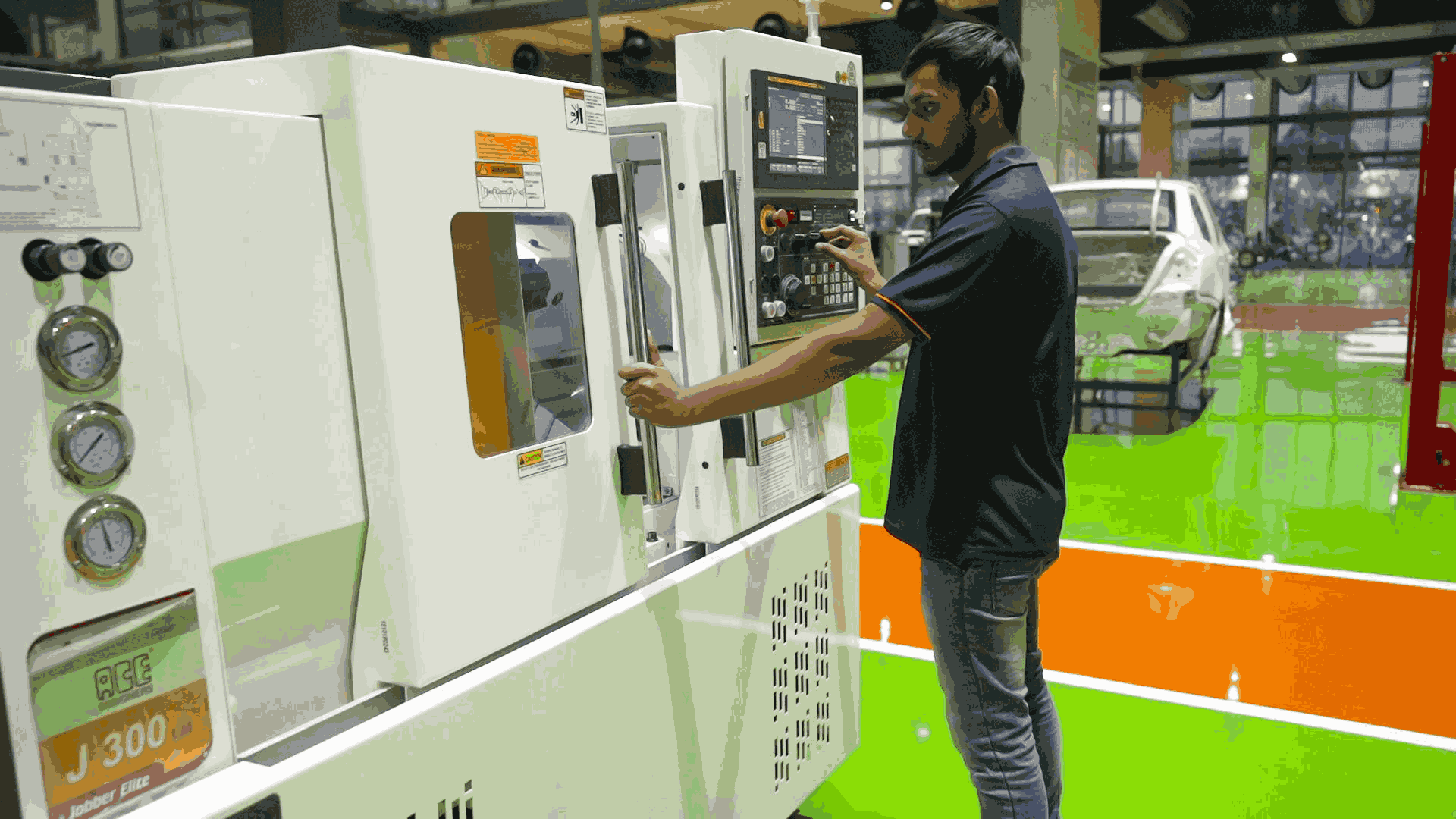Electric vehicles (EVs) are no longer just a concept for the future; they are a reality that is transforming how we move. At the heart of this shift lies one critical component: the battery. As battery technology advances, it is driving the future of mobility towards a cleaner, smarter, and more efficient era. At our automotive training institute, i.e., ‘iACE’, we understand how essential this evolution is for professionals in the automotive and energy sectors. Whether you're involved in manufacturing, infrastructure, or policy-making, the rise of EV batteries offers exciting opportunities and challenges.
“Before you go further, check out iACE’s CNC courses and vehicle technician course to begin your career in the automobile industry”
The Power Behind the Shift
EV batteries are more than just a power source; they are the backbone of sustainable transportation. Global EV sales have surged in recent years, largely due to advancements in battery technology. Solid-state batteries, for example, offer higher energy density, faster charging, and longer lifespans compared to traditional lithium-ion batteries. These improvements mean EVs can travel longer distances, recharge more quickly, and last for many years—making them more attractive to both consumers and businesses.
- Reducing Emissions : The transportation sector accounts for nearly 25% of global carbon emissions, according to the International Energy Agency (IEA). By switching to EVs powered by advanced batteries, we can significantly reduce greenhouse gas emissions, especially when these vehicles are charged using renewable energy.
- Cost Efficiency : While EVs have historically had a higher upfront cost, battery innovations are driving prices down. This makes EVs more affordable for the average consumer and cost-effective for businesses looking to electrify their fleets.
India’s Role in the EV Revolution
India is making rapid progress in the electric mobility space, with strong support from both the government and the private sector. Policies like the Faster Adoption and Manufacturing of Hybrid and Electric Vehicles (FAME) scheme and the National Electric Mobility Mission Plan (NEMMP) are pushing India towards becoming a global hub for EV manufacturing.
Maruti Suzuki, along with other key players, is leading this transformation. India's focus on four-wheelers—which make up a large part of its transportation system—is accelerating EV adoption across the country. However, to ensure a smooth transition, we need to address several challenges:
- Expanding Charging Infrastructure: More charging stations are needed, especially in rural and underserved areas.
- Reducing Battery Costs: Continued research and innovation are essential to make EV batteries more affordable.
- Public-Private Partnerships: Collaboration between government agencies and private companies is key to building a sustainable EV ecosystem.
Key Trends to Watch
- Smart Charging Infrastructure : Charging technology is evolving rapidly. Innovations like ultra-fast charging, wireless charging, and vehicle-to-grid (V2G) systems are changing how EVs interact with the power grid. V2G technology, in particular, allows EVs to return unused energy to the grid, helping balance electricity demand and support renewable energy.
- Autonomous Electric Vehicles : The combination of electric mobility and autonomous driving technology is set to revolutionize personal and shared transportation. Maruti Suzuki and a few other Indian car manufacturers are investing in these advancements, aiming to create vehicles that can drive themselves, reduce accidents, and optimize traffic flow.
- Fleet Electrification and Shared Mobility : Companies like Uber and Ola are shifting to electric fleets to reduce costs and environmental impact. Shared mobility services not only lower emissions but also help reduce urban congestion.
- Sustainable Battery Innovations : The future of EVs relies heavily on sustainable battery development. Recycling and repurposing used EV batteries is becoming increasingly important to minimize waste and maximize resources.
Opportunities for Automotive Professionals
As the EV market grows, so does the demand for skilled professionals. At iACE, we offer specialized programs to help you build a successful career in this evolving industry:
- Automotive Training Institute: Gain hands-on experience with the latest automotive technologies.
- CNC Course: Learn precision manufacturing techniques essential for building advanced EV components.
- Vehicle Technician Course: Equip yourself with the skills to maintain and repair electric vehicles.
- Automobile Engineering: Dive deep into the design and development of next-generation vehicles.
With EV technology rapidly advancing, there's never been a better time to enhance your skills and contribute to the future of mobility. Whether you're an industry professional, policymaker, or investor, understanding the role of EV batteries is crucial for staying ahead in the automotive sector.
For more information on how you can be a part of this exciting future of automobile engineering, visit our academia page to know more about our courses. Admissions are now open—take the next step towards becoming an expert in the automobile sector!


